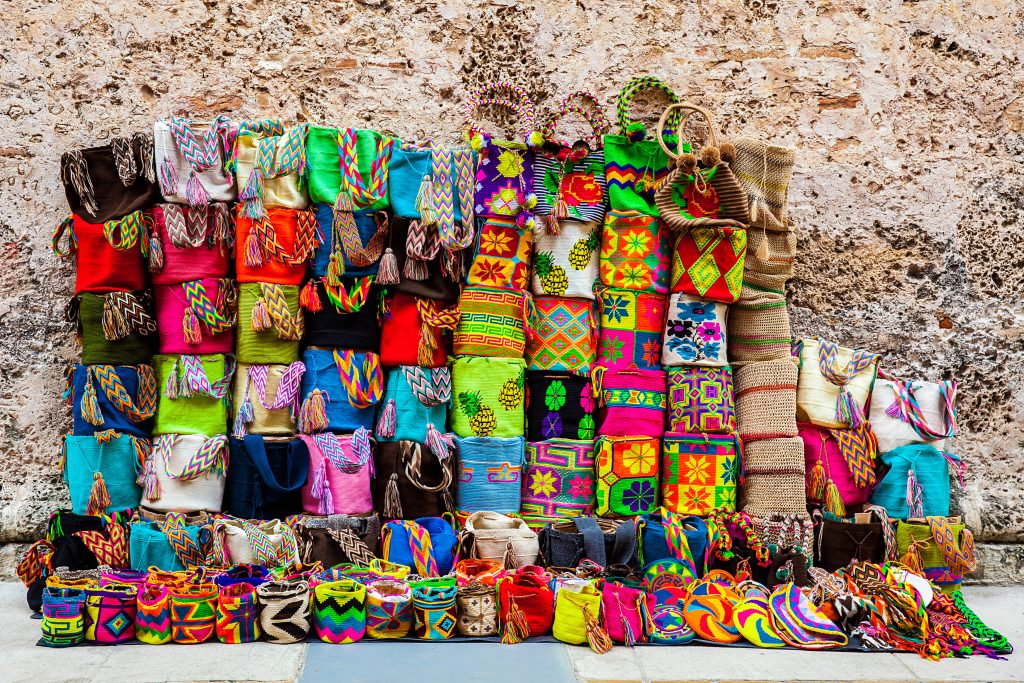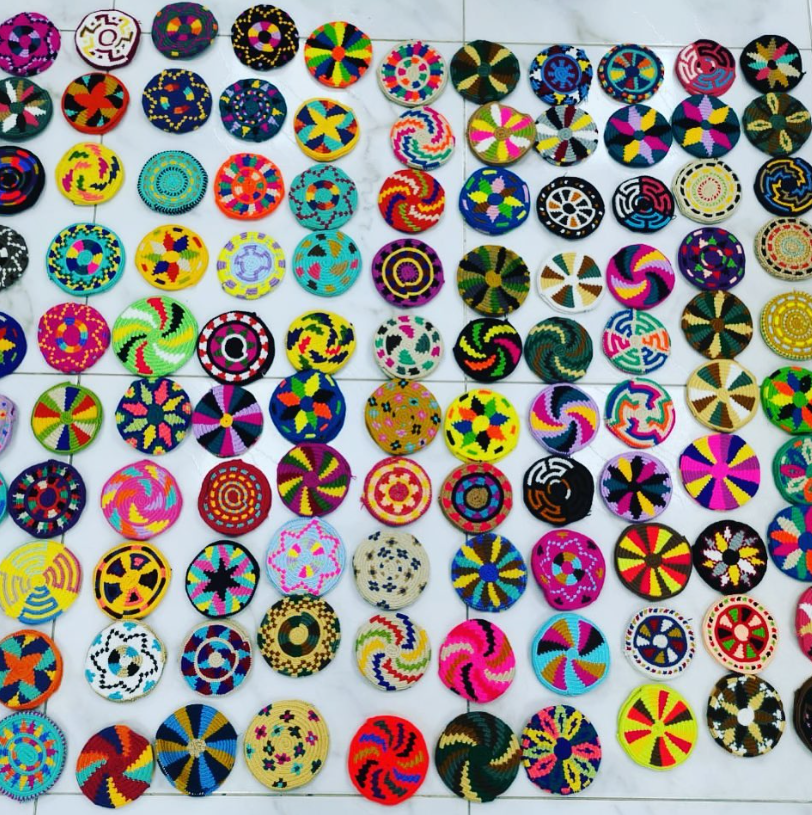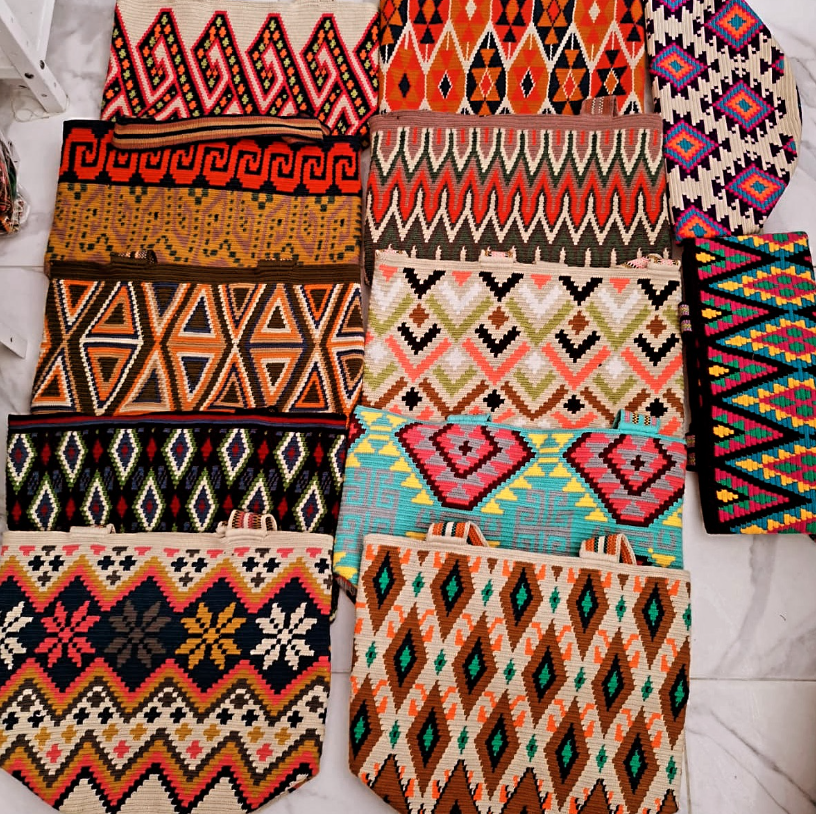
Amid the arid expanse of La Guajira Peninsula, the Wayuu people have masterfully woven their heritage into Wayuu bags—iconic creations that are more than accessories. As global demand for Wayuu bags grows, so does the opportunity to preserve cultural identity and empower the artisans behind each stitch.
The Wayuu people, residing in the arid region of La Guajira Peninsula, which spans northern Colombia and northwestern Venezuela, are known for their rich cultural heritage and masterful weaving traditions. At the heart of their cultural identity are the Wayuu bags, serving not only as practical items but as symbols of their heritage.
The history of Wayuu weaving traditions dates back hundreds of years. Their exceptional weaving skills are used to create various items, including the iconic Wayuu bags, which are integral to their daily life and rituals. Every Wayuu bag is a meticulous work of art, crafted by artisans who have learned the skills from their ancestors.
Wayuu bags play a significant role in both ceremonial and everyday contexts. They are used in rituals, as gifts during important life events, and as everyday carriers. The designs and motifs woven into each bag often carry specific meanings and stories, reflecting the Wayuu’s cosmology and worldview.
The intricate patterns known as Kanaas are a cornerstone of Wayuu artistry. More than mere decoration, these motifs encapsulate the Wayuu’s cosmology, natural surroundings, and daily life. Each Kanaa tells a story, imbuing the bags with deeper meaning and cultural significance.
Wayuu bags feature various motifs, each bearing unique significance:

The color palette of Wayuu bags is rich and varied, with each hue imbued with cultural and symbolic significance.
Wayuu artisans primarily use two weaving techniques:
Wayuu bags are distinguished by their exceptional craftsmanship, artistic elements, and cultural significance. Each bag is unique, reflecting the artisan’s individual style and creativity. The motifs and colors carry deep meanings and stories, making each bag a one-of-a-kind piece that blends artistry and cultural expression.
The global popularity of Wayuu bags has transformed these traditional crafts into tools for community empowerment, providing economic opportunity and cultural preservation.
The international market has boosted the economic prospects for the Wayuu community, providing fair prices and improving their standard of living. The revenue is often reinvested in the community, funding essential services like education and healthcare.
Ethical consumerism is crucial in the context of Wayuu bags. It involves making purchasing decisions that positively impact the producers and the environment, ensuring fair wages, safe working conditions, and respect for cultural practices.
Fair Trade certifications ensure fair labor conditions, fair wages, environmental sustainability, and community development. By choosing Fair Trade-certified Wayuu bags, consumers contribute to the economic empowerment of the Wayuu community and the preservation of their cultural heritage.
Consumers can immerse themselves in Wayuu culture by:
By actively engaging with Wayuu culture, consumers contribute to the preservation and appreciation of their unique traditions.

While the global demand for Wayuu bags offers economic opportunities and cultural visibility, it also presents challenges that the Wayuu community must navigate. These challenges require collaborative efforts and a balance between preserving tradition and adapting to modern market dynamics.
The increasing demand for Wayuu bags has led to concerns about maintaining the authenticity of the craft. Mass production and the use of synthetic materials can compromise the quality and cultural significance of the bags. Preserving traditional weaving techniques and using natural materials are crucial for maintaining the cultural integrity of Wayuu bags.
Ensuring that Wayuu artisans receive fair wages and work in safe conditions is essential. Supporting organizations and businesses that promote Fair Trade practices helps guarantee the ethical production of Wayuu bags. Consumers can contribute by choosing Fair Trade-certified products and being aware of the sourcing practices of the businesses they support.
Protecting the intellectual property rights of the Wayuu people is paramount. This includes recognizing and respecting their traditional designs and patterns, preventing unauthorized reproduction and cultural appropriation. Legal frameworks and community-led initiatives are needed to safeguard Wayuu cultural heritage and prevent the exploitation of their artistry.
As the demand for Wayuu bags grows, it is crucial to ensure that their production remains environmentally sustainable. This involves using natural and locally sourced materials, minimizing waste, and promoting eco-friendly dyeing techniques. Supporting artisans who prioritize sustainability and collaborating with organizations that promote environmentally friendly practices can help preserve the natural resources of the Guajira Peninsula.
Wayuu women are the primary weavers and play a central role in preserving and transmitting their cultural heritage. Empowering Wayuu women through education, access to resources, and leadership opportunities strengthens their economic independence and ensures the continuity of their weaving traditions. Supporting organizations that focus on women’s empowerment and investing in educational programs that promote traditional skills can have a lasting impact.
The Wayuu community’s remarkable resilience and adaptability are evident in their ability to navigate the challenges and opportunities presented by the global demand for their bags. By embracing sustainable practices, protecting their intellectual property rights, and empowering Wayuu women, they can ensure that their weaving traditions continue to thrive.
The future of Wayuu bags lies in a collaborative approach that involves artisans, consumers, organizations, and policymakers working together. By promoting ethical consumerism, supporting Fair Trade initiatives, and advocating for policies that protect indigenous rights, we can create a sustainable and equitable market for Wayuu bags, one that celebrates their cultural heritage and empowers the artisans who keep this ancient tradition alive.
In conclusion, Wayuu bags are more than just beautiful accessories; they are powerful symbols of cultural identity, artistic excellence, and community empowerment. As consumers embrace conscious consumption and engage with Wayuu culture, they contribute to the preservation of a rich heritage and the sustainable development of the Wayuu people.
Discover our online store featuring a stunning collection of Wayuu bags. Shop now and embrace the beauty of tradition!